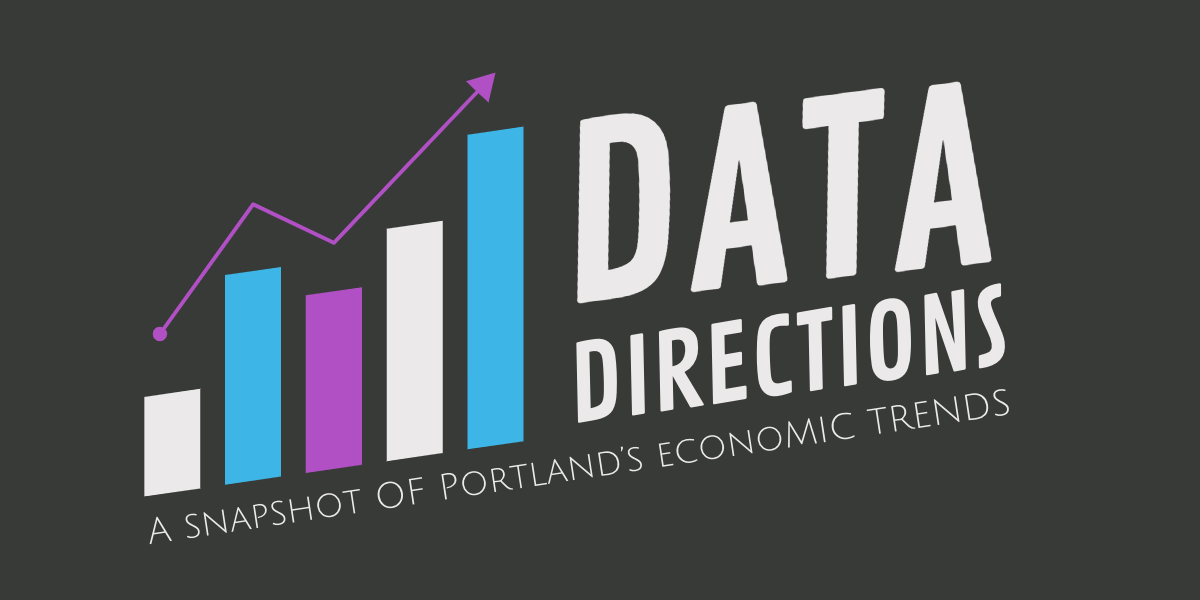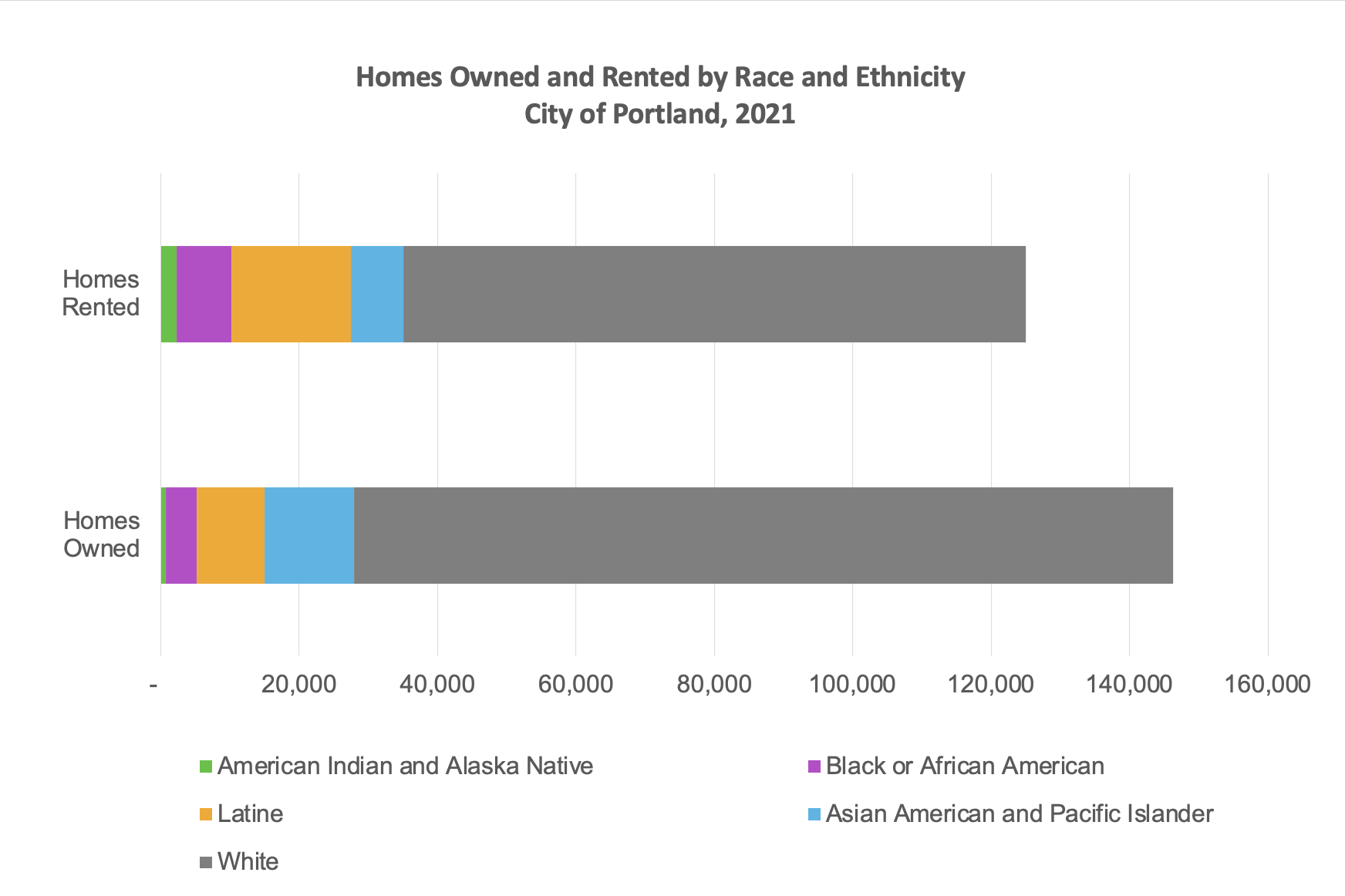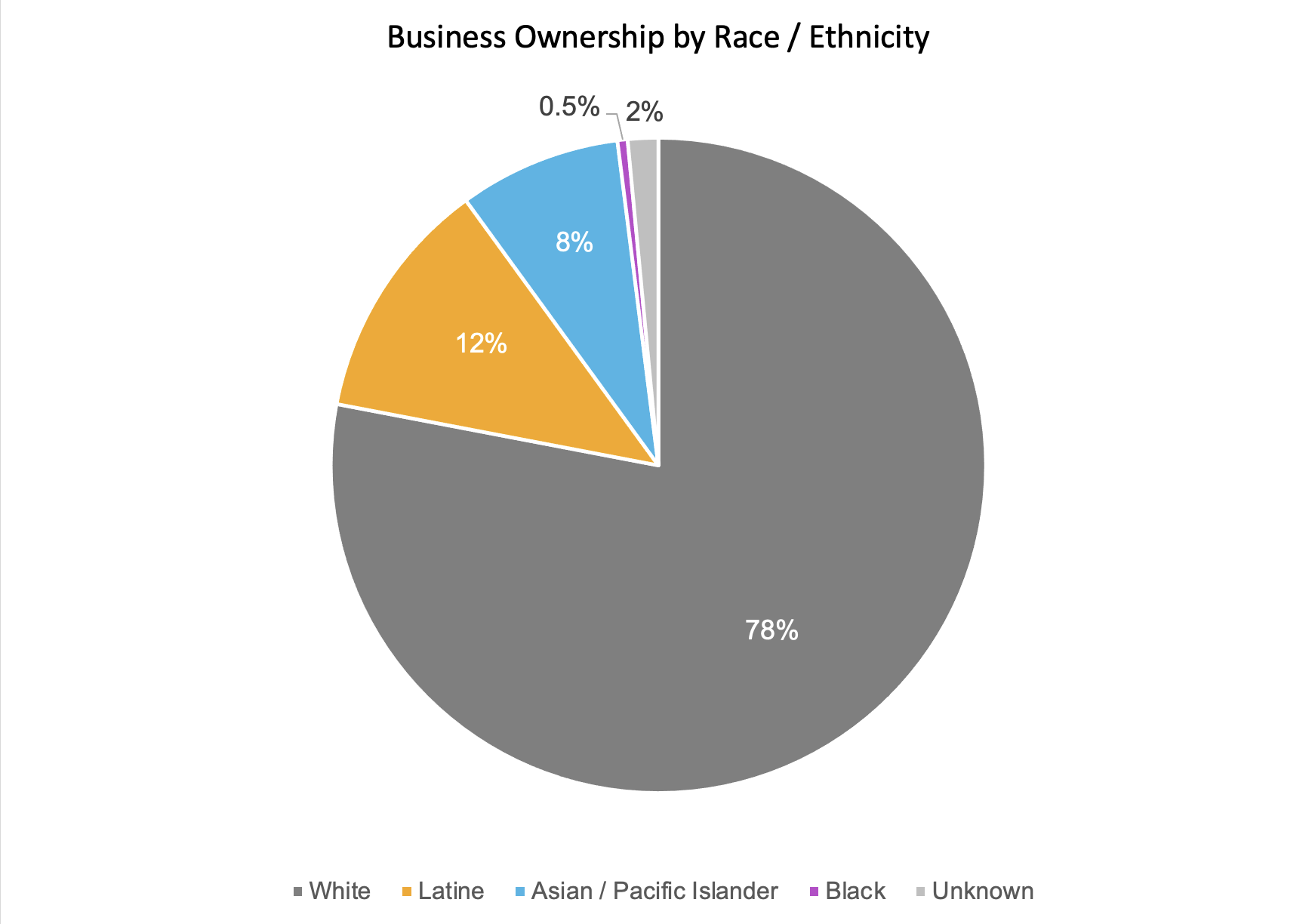Data Directions: Promote Equitable Wealth Creation

May 2023
Staggering wealth inequality continues to be a significant challenge across the country. Multigenerational wealth created from property and business ownership drives much of this disparity; even gains in employment and income show little progress in erasing differences in wealth.
The 2019 Federal Reserve Survey of Consumer Finance finds that nationally, white households have a mean net worth of $980,000. That’s more than 5 times the average net worth of Black and Latine households. For the average US household that owns their home, as opposed to renting, home equity is the largest source of household wealth.

To better understand wealth inequality, an insightful indicator is home ownership rates disaggregated by race. According to the 2021 US Census, Asian and white Portlanders have home ownership rates of nearly two in three. Black and Latine households have home ownership rates of only slightly more than one in three. For Native American Portlanders, that rate is only one in four. Examining these data provides a glimpse into wealth inequality, but it does not tell the complete story – distribution of wealth can be disparate between race, within race and ethnicity, and other intersecting identities.

In the Portland region, 31% of the population is BIPOC. However, just 22% of Portland business ownership was BIPOC according to the 2017 US Census Business survey. Noticeably, only 1 percent of Portland businesses are Black-owned, despite representing 4 percent of the population.
Prosper Portland has a focus on growing wealth more equitably via inclusive networks and partnerships with Black, Indigenous and all entrepreneurs of color to increase business ownership and growth in opportunity-rich industries as well as property ownership and development across Portland.
Small business ownership can play a critical role in wealth creation for BIPOC entrepreneurs. In response to the COVID-19 pandemic, Prosper Portland used American Rescue Plan Act (ARPA) funding to establish the Portland Small Business Hub. Through the hub, entrepreneurs can access support in navigating potential relief funding, business technical assistance, and other essential business relief resources and services. Since its launch, the Small Business Hub has supported more than 200 businesses, with 70% of those businesses identifying as BIPOC-owned.